Module B | Good Night and Good Luck Evidence
1/9
There's no tags or description
Looks like no tags are added yet.
Name | Mastery | Learn | Test | Matching | Spaced |
|---|
No study sessions yet.
10 Terms
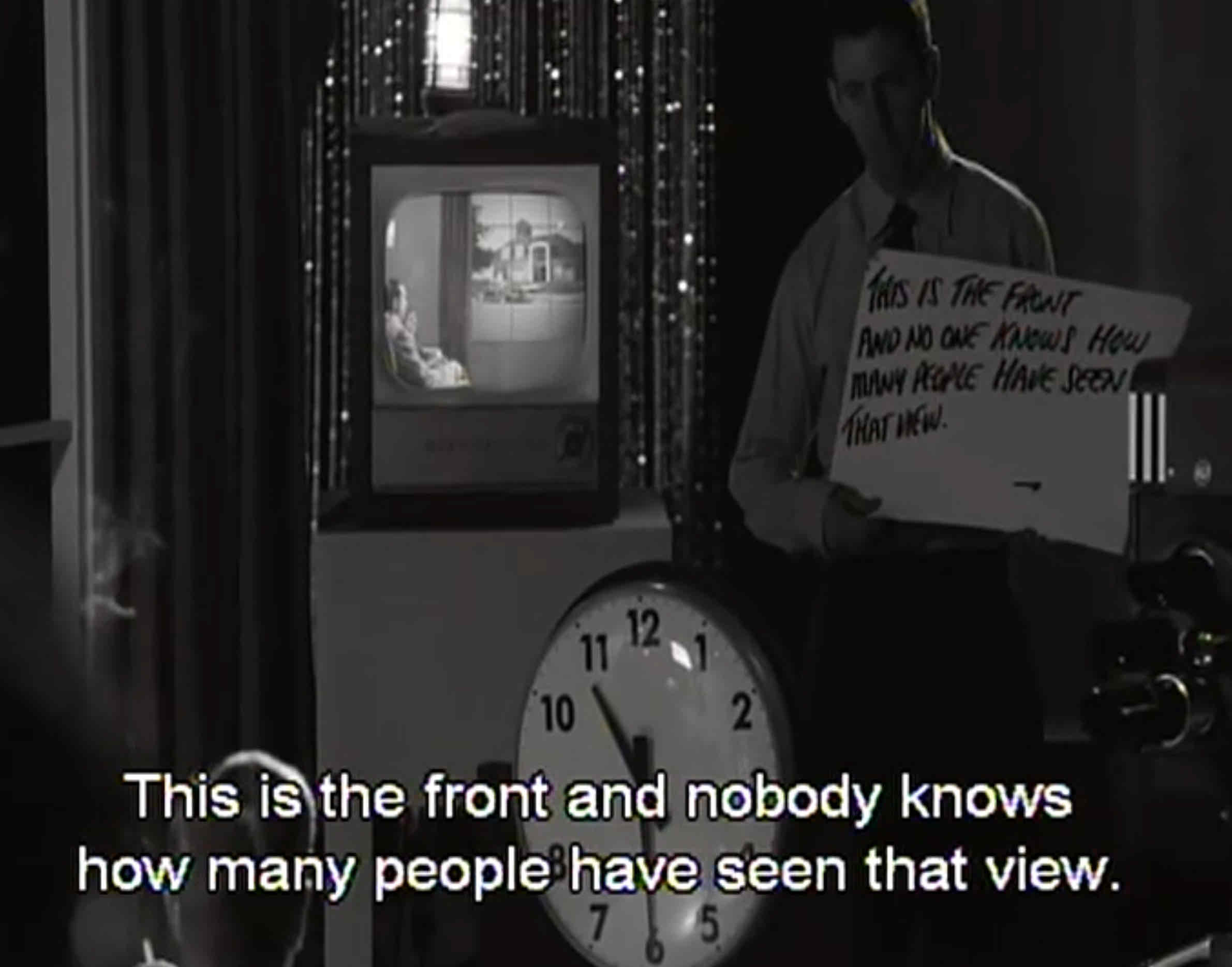
“front…back…and bedroom”
The voyeuristic tone of Liberace’s home through Murrow’s mention of the front, back, and bedroom view, offers audiences to consider the societal pressure that Liberace feels to portray a normal lifestyle.
“Looking for her dream man too.”
The double entendre shows Liberace’s double lifestyle, as though he is homosexual in real life, he is conforming to seeking a normal marriage under conformity of societal expectations in media.
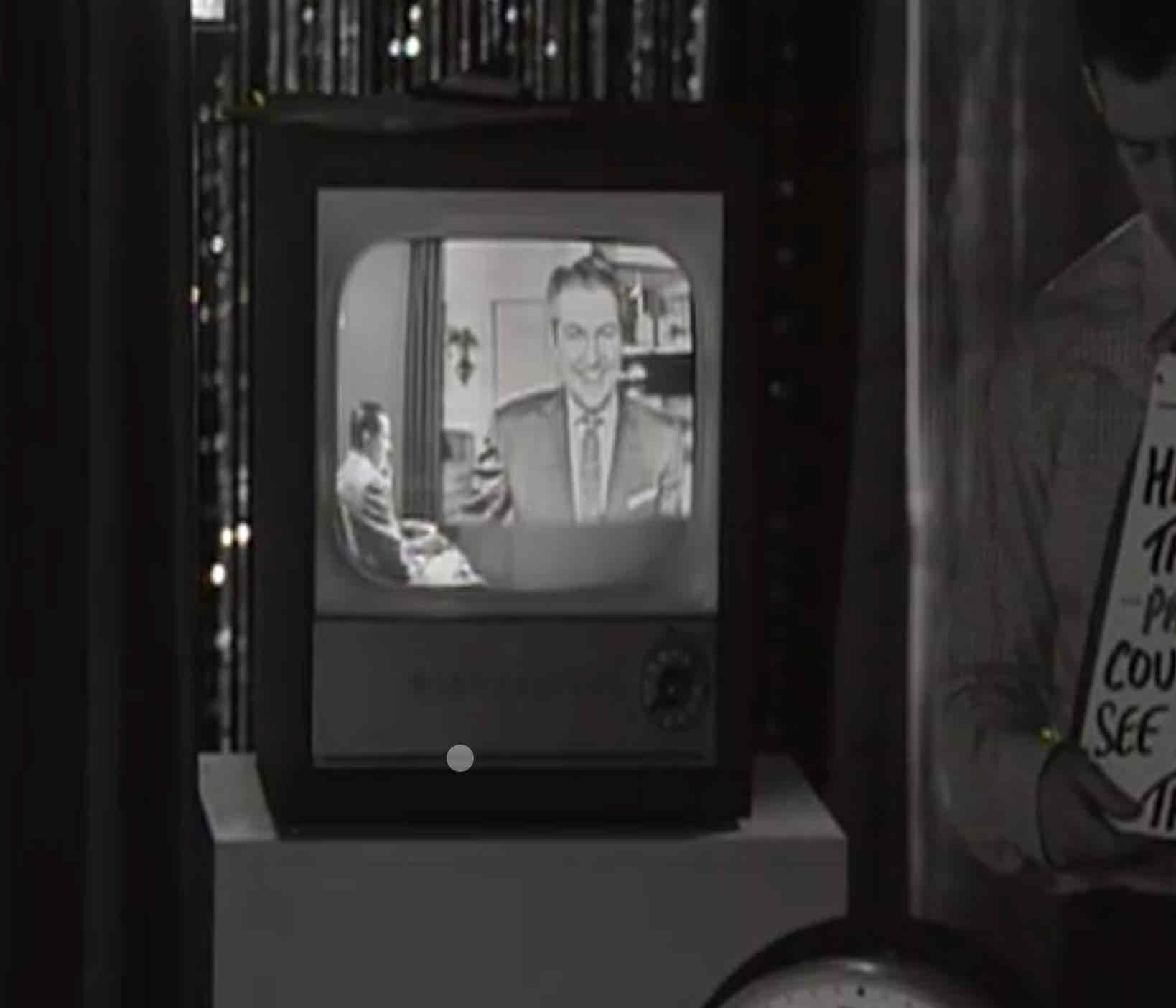
Framing of Liberace’s Smile
The framing of Liberace’s smile emphasises his disguise on media by displaying himself as a person that abides by the social norms of marriage in the 1950’s, when in reality, he is homosexual.
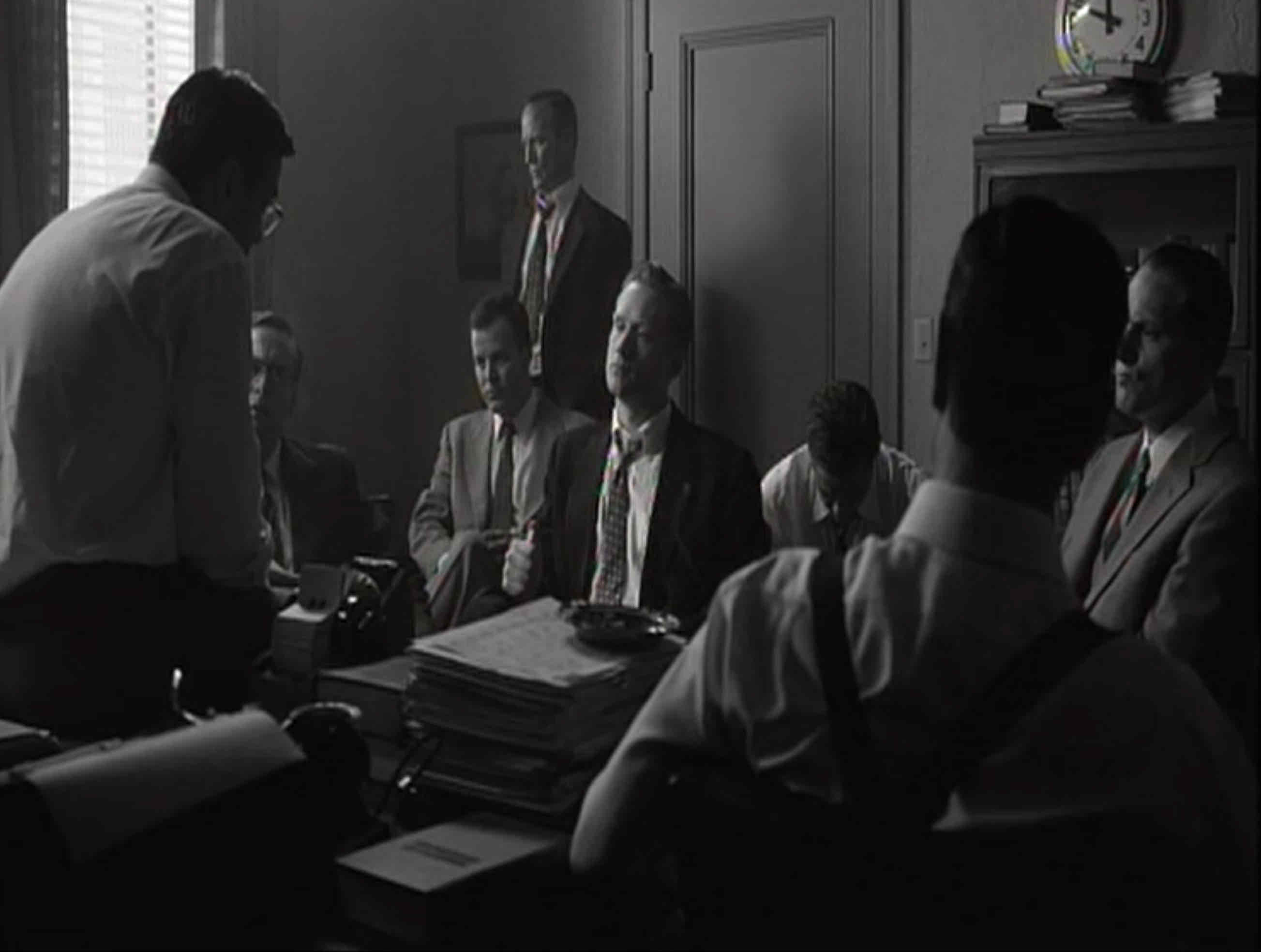
Light Symbolism & Blocking
The view of the journalists gathered together when discussing about the attack on McCarthy utilises light symbolism and blocking to highlight that the CBS employees have journalistic skills that we, as the audience, do not have.
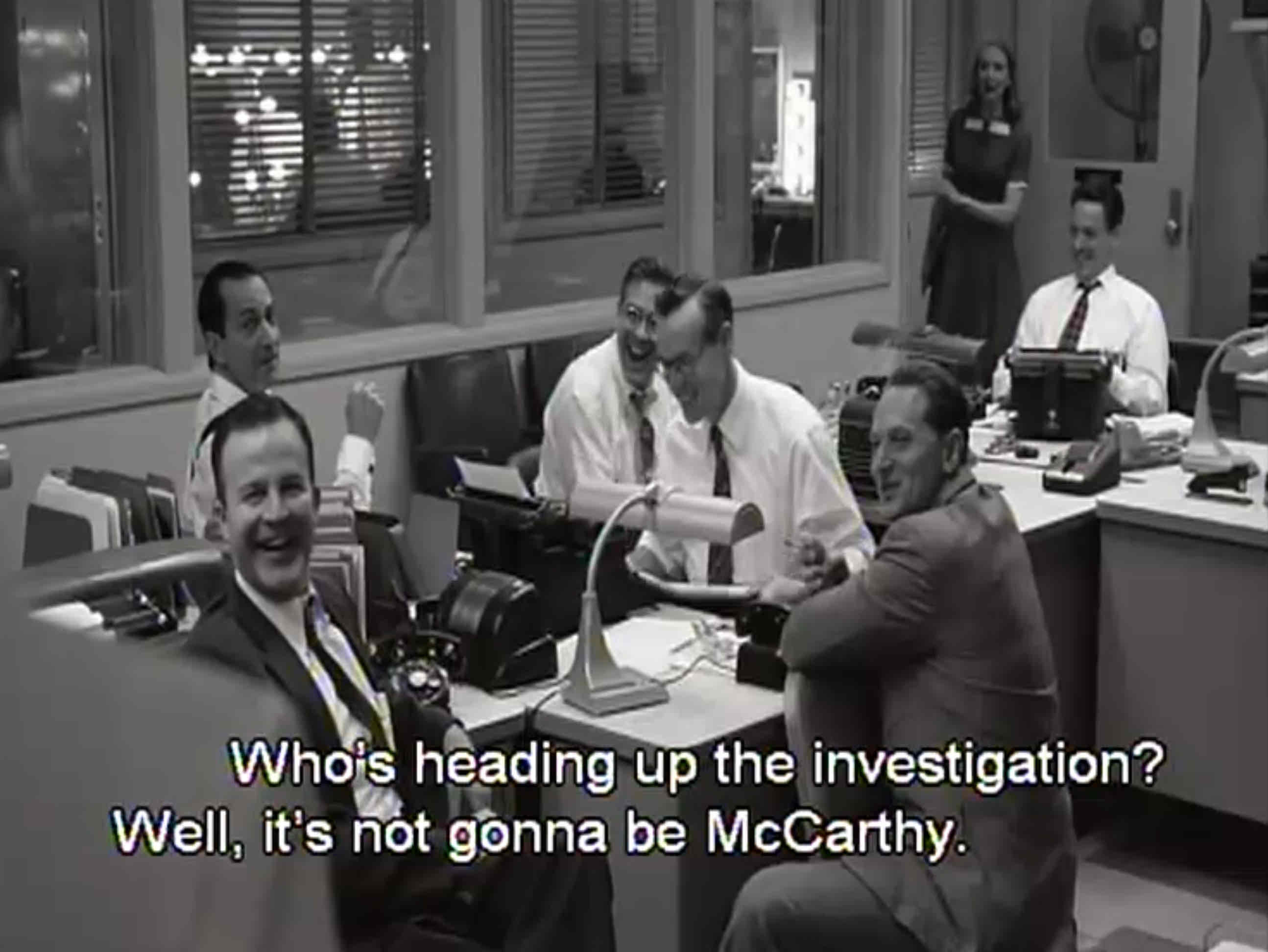
Light Symbolism & Blocking
The blocking also signifies the separation between us as the audience and the journalists to indicate that there is a stark different in researching and investigating skills to discern the truth.
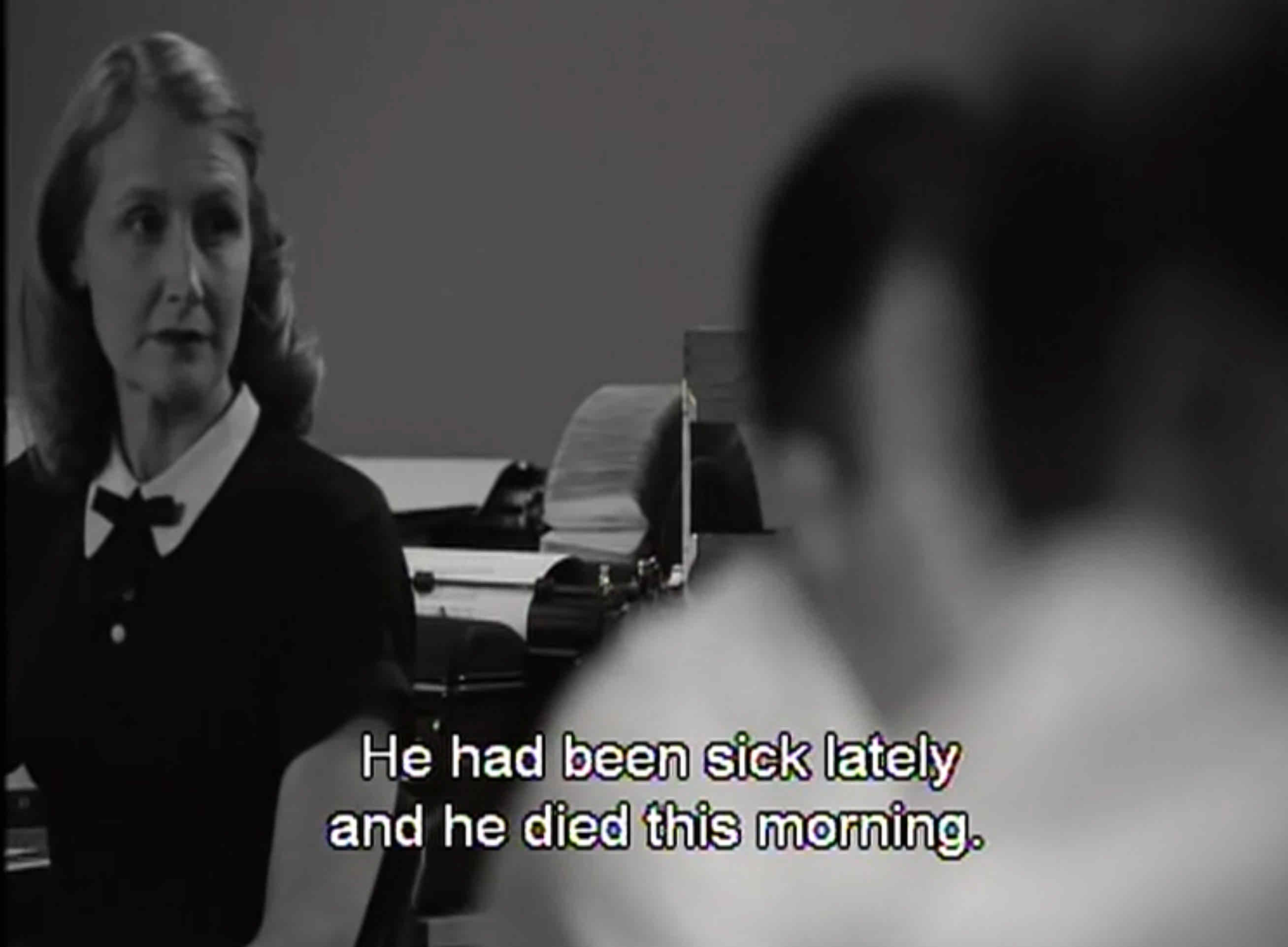
“He had been sick lately and he died this morning.”
The euphemism in ‘sick’ and the blocking of the shot furthermore emphasises that audiences are disconnected to the experiences of journalists and the consequences that they go through to find the truth.
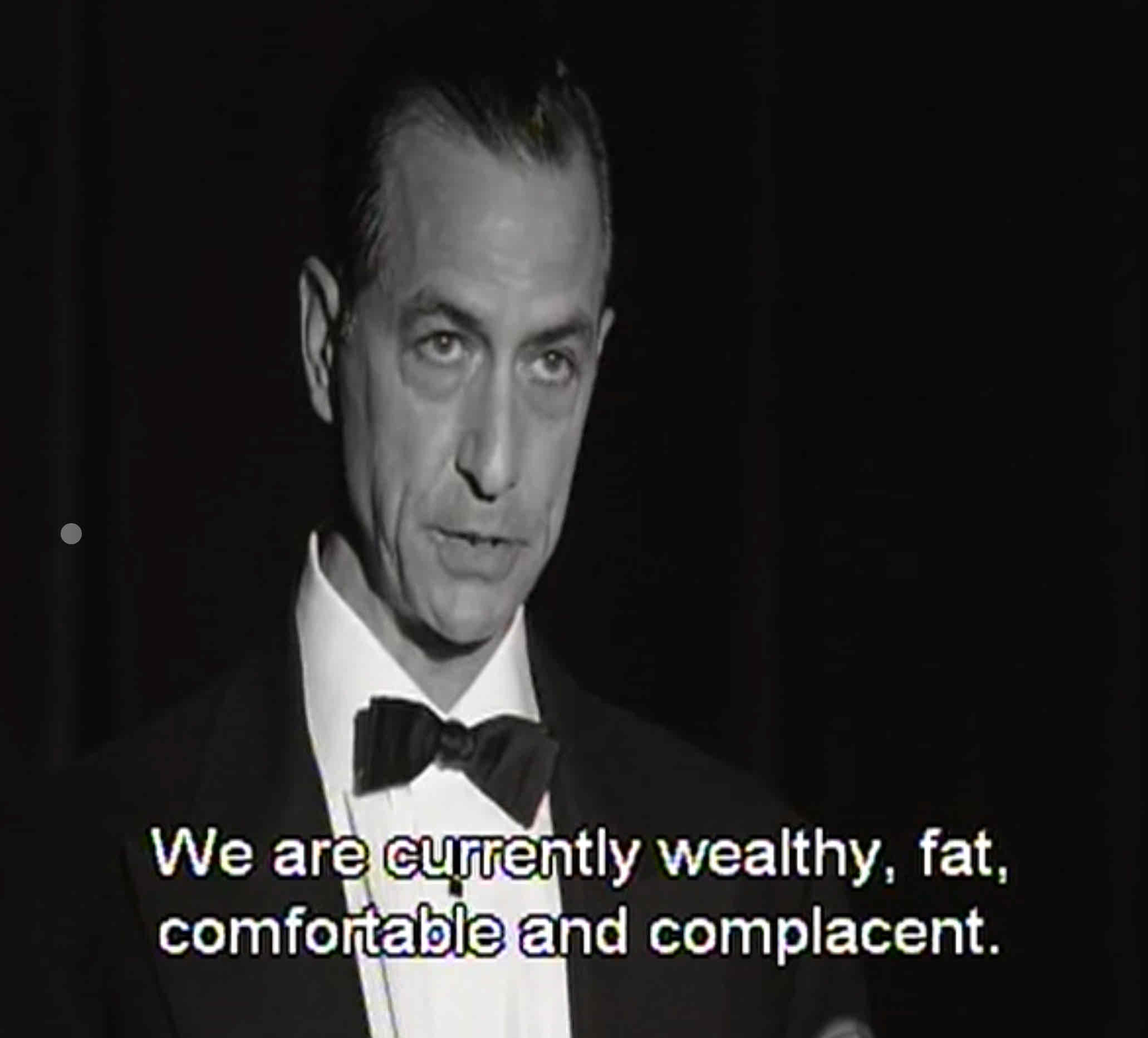
“We are currently wealthy, fat, comfortable, and complacent.”
The cumulative listing and the symbolism of the light, reinforces Murrow’s authority and credentials as a journalist but also, adding serious weight to how society is complacent in protecting the vulnerable through the interactions of media.
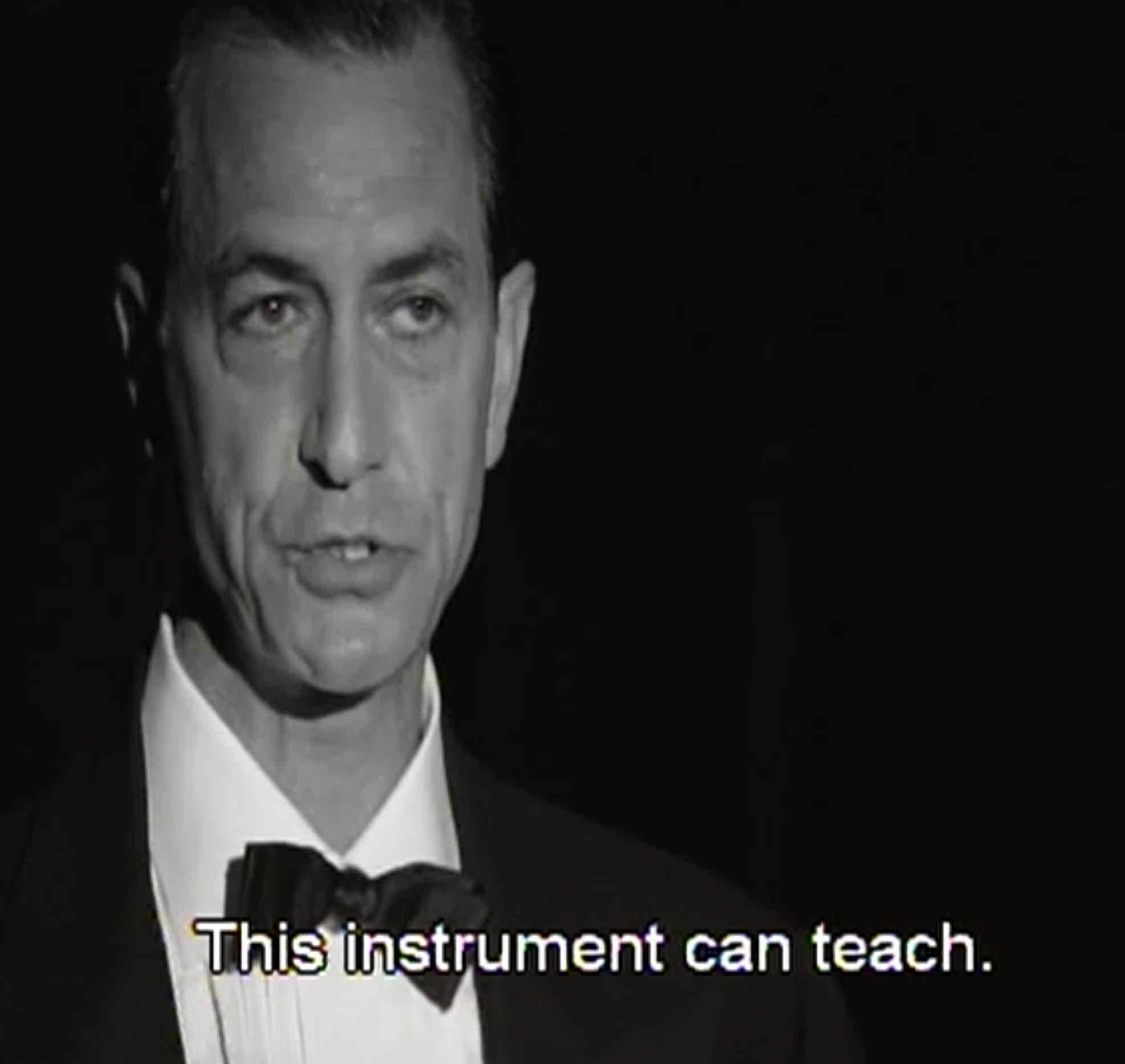
“This instrument can teach.”
The short syntax reaffirms Murrow’s statement that media can be a tool to teach rather than to just insulate and entertain the masses and emphasising on how we use use media in our present communities.
“But even if they are right, what have they got to lose?”
The rhetorical question encourages audiences to consider their role in society in supporting the educational aspect of the media, and upholding Murrow as a lone hero by indicating the lack of consequences when acknowledging media as an education tool.